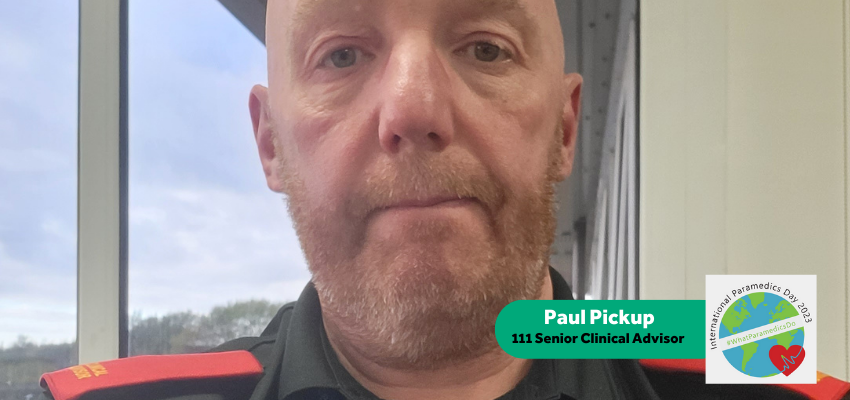
Here, Paul explains how his frontline experience helps care for public callers he speaks with in his new role.
You’ve been on quite the career and life journey, tell us more?
I genuinely loved my work as a senior paramedic, so in 2019 when I had to undergo two craniectomies – a neurosurgical procedure that involves serious surgery to relieve pressure on the brain – I was left with significant eyesight loss and epilepsy, meaning I lost my driving licence in the process. During covid, I worked from home on alternative duties but became unwell with frequent admissions to hospital. This led to me taking the decision to focus on my own health and leave the job I loved.
However just before I finished, I did receive the Queens medal for long/outstanding service, which was a real honour. Sitting at home I realised how much I missed my previous life & that I had a skill set that may work somewhere, without needing a driving licence! Lucky for me, there was an opportunity at 111 as a senior clinician. I work from home the majority of the week and based at Middlebrook 111 for the rest.
What does a day in the life of your new role look like to you?
It would be fair to say the role at 111 is very different to working as a paramedic on the frontline, however the triage system is very similar which meant I could get stuck in to things quickly. I’m definitely a people person, I really thrive in a fluid environment and 111 is a really dynamic workplace.
When out on the road as a paramedic, you really can’t predict how your shift will turn out and where you’ll be called out to, not to mention you can be put out of your comfort zone multiple times a day. 111 definitely has more structure in that sense, more routine in terms of the types of calls we receive and how often.
What are your favourite parts of your job?
I like to feel I have made a positive outcome to the people I speak with and support, 111 still provides urgent medical support to those who really need it.
What is the one thing you want people to know about your job?
Think of the 111 service and the caller, like a canoe with 2 people. It works well if the two people in the boat are rowing together. When the two people are rowing in opposite directions, it is difficult to get the desired outcome.
Thank you for sharing this with us Paul and Happy International Paramedics Day.